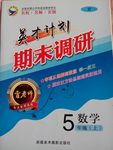题目内容
Your parents will be pleased ________ your present if you post it before Christmas.
- A.receiving
- B.receive
- C.to receive
- D.received
在be pleased结构后应用不定式,而不能用分词。

 名师点拨卷系列答案
名师点拨卷系列答案 英才计划期末调研系列答案
英才计划期末调研系列答案Many children use the Internet to get useful knowledge and information, and to relax in their free time. But some of them are not using it in a good way. Here are some rules to make sure you are safe and have fun on the Internet.
※Make rules for Internet use with your parents. For example, when you can go online, for how long and what activities you can do online.
※Don’t give your password(密码)to anyone else, and never give out the following information: your real name, home address, age, school, phone number or other personal information.
※Check with your parents before giving out a credit(信用)card number.
※Never send a photo of yourself to someone in email unless your parents say it’s OK.
※Check with your parents before going into a chat(聊天)room. Different chat rooms have different rules and attract different kinds of people. You and your parents will want to make sure it’s a right place for you.
※Never agree to meet someone you met on the Internet without your parent’s permission(允许). Never meet anyone you met online alone.
※Always remember that people online may not be who they say they are. Treat everyone online as if they were strangers.
※If something you see or read online makes you uncomfortable, leave the site. Tell a parent or teacher right away.
※Treat other people as you’d like to be treated. Never use bad language.
※Remember - not everything you read on the Internet is true.
1.The writer tells children to _________.
|
A.send their own photos to him |
|
B.make rules for Internet use with parents |
|
C.believe everything they read on the Internet |
|
D.give out their personal information |
2.It’s good for children to ______ on the Internet.
|
A.give password to others |
|
B.get useful knowledge and information |
|
C.give out a credit card number |
|
D.go into a chat room as they’d like to |
3.What shouldn’t be done when you are on line? _________
|
A.Using bad language |
|
B.Sending messages and emails |
|
C.Leaving the site if you feel uncomfortable |
|
D.Treating everyone online as strangers |
4.If your parents don’t agree, never ________.
|
A.read anything on the Internet |
|
B.relax in your free time |
|
C.have a face-to-face meeting with anyone you met online |
|
D.treat other people as you’d like to be treated |
5.The passage is mainly about _________ .
|
A.How to use computers |
B.Surfing on the Internet |
|
C.Information on the Internet |
D.Internet safety rules |